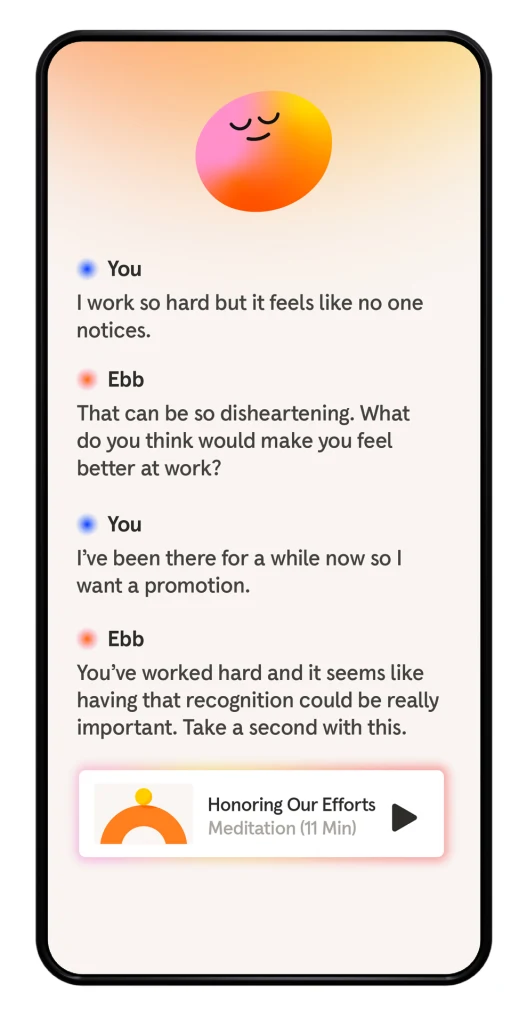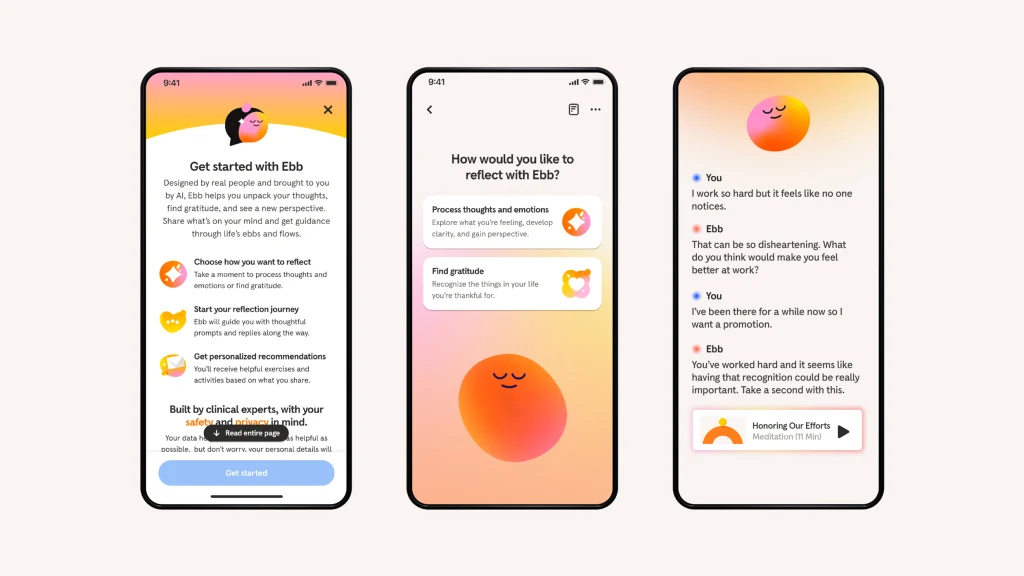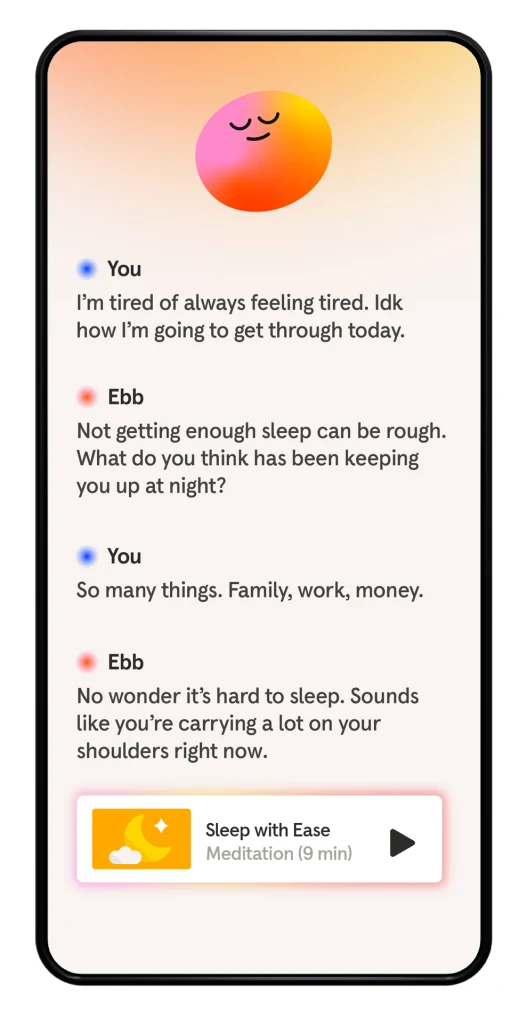Mental health app Headspace has launched a generative AI-powered chatbot called Ebb for users to get instant, personalized support through life’s ebbs and flows, the company exclusively told Fast Company.
Ebb was specifically trained by clinical psychologists and data scientists in motivational interviewing, an evidence-based methodology that works to help people make positive behavioral changes. The chatbot has two paths: having users reflect on certain events (and then suggesting content found within the app), or having users reflect on things they’re grateful for.
“It’s really meant to be this sort of empathetic companion to someone along their Headspace journey,” Dr. Matthew Chester, Headspace senior product manager for conversational AI and clinical psychologist, said in an interview. Ebb is included in consumer subscribers’ plans at no additional cost.

To be sure, the chatbot doesn’t give mental health advice, guidance, or diagnoses. If a user seems to be at risk of immediate harm, Ebb will quickly respond, empathetically saying that the issue is beyond what it can help with and sharing the number to the national crisis hotline that can be accessed with the tap of a button. When Fast Company tested this response, it immediately ended the ability to have a conversation, and the next time a new chat opened, it went to what we spoke about prior to the tested crisis.
Anytime a piece of technology is used to help with mental health, there could be a risk of it going off the rails. Headspace, according to Chester, “did some very rigorous and intensive development and testing to ensure that Ebb keeps users in boundaries of the types of conversations that we want them to be having.”
In the event there wasn’t a crisis, right now, the chatbot can only remember the last conversation it had with users, meaning it can’t retain much information and draw from it during future conversations. The company is hoping to increase that memory span. It’s also thinking about deeper integration of its chatbot care with its mental health providers. Headspace currently has coaches, therapists, and psychiatrists offering care. In the future, it could, with consent, share the types of things users talked about in sessions with Ebb with care providers or vice versa.
Companies, including Headspace, have been deploying artificial intelligence technology for several years now.

In 2021, Headspace merged with Ginger, a leader in on-demand mental health care, to form Headspace Health. The following year, it bought AI-powered mental health and wellness startup Sayana to accelerate its AI efforts. It had been using AI technology to match coaches with users, help coaches fill out note-taking summaries from sessions, and create so-called smart replies for coaches to use in responding to conversations.
But recent advancements in the generative AI space have taken off exponentially, allowing companies to come up with and release features even faster.

“With the rise of large language models and generative AI, we’ve been excited, but very intentional about ways in which that can start to bridge much more actively into the member experience,” Headspace chief product and design officer Leslie Witt said in an interview.
Headspace currently doesn’t have plans to directly monetize Ebb.
“It has member value,” Witt said. “And member value drives business value. And so what we have seen, even with our initial pilot, is that members who use Ebb have more active use days, and they also are consuming more content, they’re taking the recommendations given by Ebb and using that.”
Jelentkezéshez jelentkezzen be
EGYÉB POSTS Ebben a csoportban


Ever wondered what goes on behind the scenes in a modern airliner’s cockpit? While you’re enjoying your in-flight movie, a quiet technological revolution is underway, one that’s

Hello again, and welcome to Fast Company’s Plugged In.
For as long as there’s been software, upgrades have been emotionally fraught. When people grow accustomed to a pr


The summer holidays are here and many of us will heading off on trips to hot and sunny destinations,

Welcome to AI Decoded, Fast Company’s weekly new

Russia on Wednesday became the latest country to restrict some
